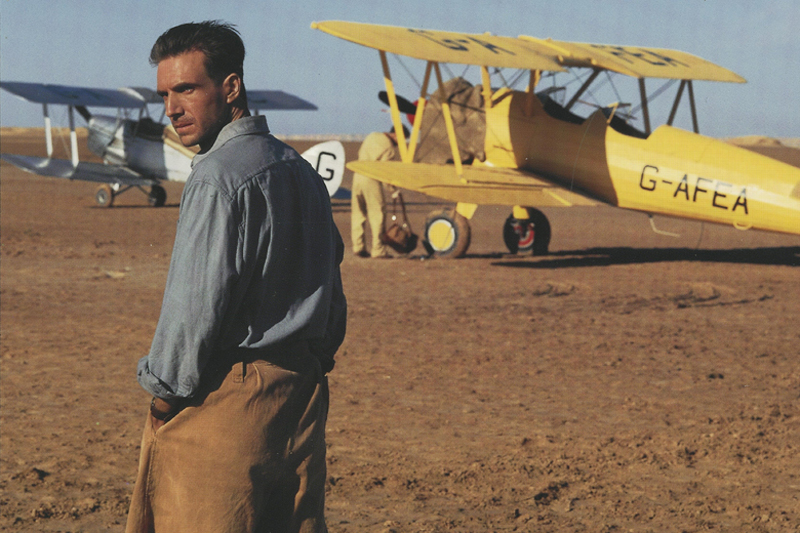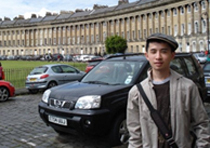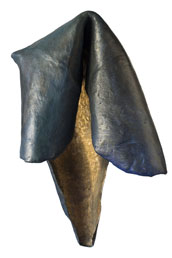From Text to Celluloid
In conversation with Shane Smith, Director of Public Programmes at TIFF Bell Lightbox, and Eleanor Wachtel, writer, broadcaster and host of CBC Radio’s award-winning “Writers & Company.”
Tom Ue: Since February, TIFF has been putting together a wonderfully successful “Books On Film Club”, a series of screenings and conversations about the art of adaptation. Hosted by CBC’s Eleanor Wachtel, this series brings together book and film lovers to examine great cinema that began as outstanding literature. It is a pleasure to have Shane Smith, the Director of Public Programmes at TIFF Bell Lightbox, and Eleanor tell us a bit about this event. What inspired this series?
Shane Smith: Books On Film Club was inspired by the well-established relationship between film and literature; some of the earliest films were based on books, and that connection has only continued to strengthen over time. Throughout our thirty-five year career of programming films for both the Toronto International Film Festival and our year-round TIFF Cinematheque, we have come across many exquisite films that were inspired by well-crafted novels. Now that we have our permanent home, TIFF Bell Lightbox, it is the perfect location to showcase some of these amazing films and the texts that inspired them, and to delve into both the challenges and rewards of adapting literature for film.
T.U.: How is the response to the series so far?
S.S.: The response from our audiences has been phenomenal, both in terms of subscription/ ticket sales and in terms of audience feedback. The guests for the series were carefully selected to ensure that they cover a range of areas related to the topic, and audiences have thoroughly enjoyed the insights that our host, Eleanor Wachtel, has elicited from them. Based on the success of the series so far, we’re already discussing another season of Books On Film Club.
T.U.: The selected books and films cover quite a range. Please, tell us about the selection process.
Eleanor Wachtel: I wanted to have a wide mix of subjects and styles to illustrate the range that this kind of series can cover: period classic (Mansfield Park), contemporary modern (The English Patient), genre (Double Indemnity), contemporary classic (Lolita), stylish fashion (Breakfast at Tiffany’s), and inventive/experimental (Adaptation). At the same time, on each occasion an invited guest approaches the film from a somewhat different angle; namely, as author, director, critic, film historian, biographer, theorist. Within this framework, the actual selection was driven by several factors: primary for me was finding the right guests and then matching them to the appropriate movie. For instance, Michael Ondaatje and “The English Patient” or Patricia Rozema and “Mansfield Park”. Or, Sam Wasson who recently wrote “Fifth Avenue, 5 am” about “Breakfast at Tiffany’s,” Audrey Hepburn and the modern woman.
S.S.: Our shortlist included other titles, but some were not in print currently, and we’re looking at including them in future seasons.
T.U.: The series opens, quite appropriately, with Charlie Kaufman’s Adaptation, which brings forward many anxieties about the film industry, and a discussion with Professor Linda Hutcheon. To what extent do you see adaptation as a meeting-point between academia and the wider public?
E.W.: As you say, it seemed highly appropriate to start with Charlie Kaufman’s Adaptation and the questions it raises about the whole enterprise of adaptation and its tangential relationship with the original, Susan Orlean’s The Orchid Thief. In A Theory of Adaptation, Linda Hutcheon has written about adaptation in its many forms, not just books into film, but she is eloquent on how widespread adaptation is, and about how movies “colonize” the imagination of the potential reader. I don’t think the subject of adaptation itself is necessarily a meeting point for academia and the public; academia has long considered popular culture appropriate terrain for study and observation.
T.U.: Adaptations have a profound impact on our how we approach the – for lack of a better term – “originals.” For example, Patricia Rozema’s Mansfield Park has a profound impact on postcolonial and feminist readings of Austen’s novel. How do you see adaptations affecting our experiences of texts?
E.W.: Patricia Rozema was particularly innovative in opening up Austen’s novel. She interpolated the spirit –more than the spirit, the character— of Jane Austen onto Fanny Price. She not only had to cut, of course, but she foregrounded and altered. She drew on Austen’s letters and journals, her juvenilia. Rozema’s film has been described as more of an intervention than an adaptation. But as she said, when the film came out in 1999, “I felt fairly free to make changes as long as I felt I could face Jane Austen if I met her.”
Rozema goes further in bringing in the social context of the novel and what we know about Austen’s relationship with the colonies to create a backstory for her characters, especially Tom. For instance, Austen herself said she fell in love with the writings of Thomas Clarkson, an important abolitionist of the time. Mansfield Park is set in 1806 before the abolition of the slave trade in England and Rozema sees a very interesting connection between the title of Austen’s novel and something called the Mansfield Judgment, which was the first limitation on slavery in England. (A slave, James Somerset, beaten up and left for dead. When he recovered, his owner wanted him back but Lord Mansfield said “the air of England was too pure to tolerate slavery.” Austen knew a relative of Lord Mansfield).
T.U.: Should we read the original before the adaptation?
E.W.: Yes, if possible, to allow our imaginations to engage with the intimacy of the voice of the author. Visual images, actors, music and especially editing will leave their own imprint on our minds if we later approach the original. We find ourselves reacting to the differences rather than to a primary experience. Somehow, if we’ve read the book first, when we encounter the film, we are able to absorb different readings, so to speak, we’re more open to variation while still retaining our relationship with the original.
T.U.: How do you feel about the often cited – and sometimes dubious – line of argument that the adaptation is always inferior to the original?
E.W.: Actually, I thought the often cited line was: good book- bad movie and vice versa. In fact, I don’t think the correlation works that way either; it’s much more dependent on who is involved –which directors, screenwriters and so on, in creating the adaptation. There are certainly instances of movies that are superior to the original or simply different and equally good.
T.U.: Thank you both so much for your time!






No Comments so far ↓
There are no comments yet...Kick things off by filling out the form below.